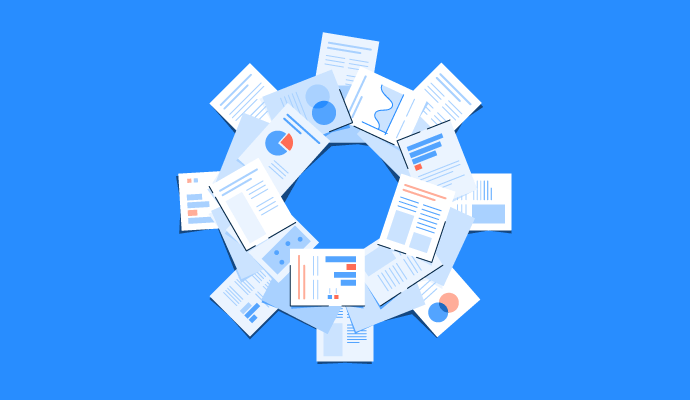In the rapidly evolving business landscape, the demand for remote Executive Assistants (EAs) is growing. These professionals offer a blend of flexibility, efficiency, and expertise that can significantly transform business operations. At Execviva, we believe that understanding the role of remote EAs and how they can enhance your business is crucial for staying competitive in today’s market.
The Role of a Remote Executive Assistant
A remote Executive Assistant performs various administrative and executive support tasks from a remote location. Their responsibilities typically include:
- Calendar Management: Scheduling and managing appointments, meetings, and events.
- Email Management: Handling and organizing emails, ensuring timely responses.
- Travel Arrangements: Booking flights, accommodations, and coordinating travel itineraries.
- Document Preparation: Creating, editing, and proofreading documents and presentations.
- Project Coordination: Assisting with project management tasks and ensuring deadlines are met.
- Research: Conducting research and compiling data for reports and presentations.
Benefits of Hiring a Remote EA
Hiring a remote EA offers numerous advantages that can transform the way your business operates:
Cost Savings
- Reduced Overhead: No need for office space, equipment, or utilities for the remote EA.
- Lower Salary Costs: Remote EAs often cost less than full-time, in-house staff due to flexible hiring arrangements.
- No Commute Expenses: Eliminates commuting costs for the EA, which can be reflected in lower compensation demands.
Increased Productivity
- Focus on Core Tasks: Free up your time to focus on strategic activities and core business functions.
- 24/7 Availability: Leverage time zone differences to have support available around the clock.
- Task Delegation: Efficiently delegate time-consuming tasks to your EA, ensuring nothing falls through the cracks. For example, in high-level roles such as executive assistant to CEO, delegating routine administrative duties allows the CEO to concentrate on critical business decisions and strategic initiatives.
Flexibility and Scalability
- On-Demand Support: Scale the level of support up or down based on business needs without long-term commitments.
- Diverse Skill Sets: Access a broader talent pool with diverse skills and expertise.
- Adaptability: Remote EAs can quickly adapt to new tools, technologies, and processes.
Enhanced Efficiency
- Specialized Skills: Benefit from the specialized skills of remote EAs, such as advanced proficiency in software and tools.
- Process Optimization: EAs can identify and implement more efficient processes for managing tasks and projects.
- Multitasking: Skilled EAs can handle multiple tasks simultaneously, improving overall business efficiency.
How Remote EAs Can Transform Business Operations
Improved Communication
Effective communication is vital for any business. Remote EAs ensure seamless communication by:
- Centralizing Information: Managing communication channels and ensuring that all relevant parties are informed, including using tools like a VoIP phone.
- Timely Responses: Handling emails and messages promptly, reducing response times.
- Meeting Coordination: Scheduling and coordinating meetings to ensure optimal participation and productivity.
Streamlined Processes
Remote EAs bring structure and organization to business operations by:
- Standardizing Procedures: Implementing standardized procedures for routine tasks.
- Automating Tasks: Utilizing automation tools to streamline repetitive tasks.
- Tracking Progress: Monitoring the progress of projects and tasks to ensure timely completion.
Enhanced Client Relations
Maintaining strong client relationships is crucial for business success. Remote EAs contribute by:
- Personalized Attention: Providing personalized attention to clients, addressing their needs promptly.
- Follow-Ups: Ensuring regular follow-ups and maintaining communication with clients.
- Professionalism: Upholding a high level of professionalism in all client interactions.
Focus on Core Competencies
By handling administrative and support tasks, remote EAs allow executives to focus on core competencies such as:
- Strategic Planning: Devoting more time to strategic planning and decision-making.
- Business Development: Focusing on business development activities to drive growth.
- Innovation: Encouraging innovation by freeing up time for creative thinking and problem-solving.
Cost Efficiency and Resource Optimization
Remote EAs help optimize resources and reduce costs by:
- Efficient Resource Allocation: Ensuring that resources are allocated efficiently to critical tasks and projects.
- Cost-Effective Solutions: Identifying cost-effective solutions and processes for business operations.
- Budget Management: Assisting in budget management and expense tracking to prevent overspending.
Tips for Successfully Integrating a Remote EA
Clear Communication
- Set Expectations: Clearly communicate your expectations, goals, and priorities to your EA.
- Regular Check-Ins: Schedule regular check-ins to discuss progress, provide feedback, and address any concerns.
- Use Collaboration Tools: Utilize collaboration tools like Slack, Zoom, or Microsoft Teams for effective communication.
Effective Onboarding
- Comprehensive Training: Provide comprehensive training on your business processes, tools, and expectations.
- Access to Resources: Ensure your EA has access to all necessary resources and information.
- Mentorship: Assign a mentor or point of contact for ongoing support and guidance or even use mentor mentee matching software to streamline the process.
Building Trust
- Transparency: Foster a culture of transparency and open communication.
- Accountability: Set clear expectations for accountability and performance.
- Recognition: Acknowledge and appreciate the contributions of your EA to build trust and motivation.
Leveraging Technology
- Project Management Tools: Use project management tools like Asana or Asana alternatives like Trello, or Monday.com to track tasks and projects.
- Time Tracking: Implement best time tracking software to monitor productivity and manage workloads effectively.
- Document Sharing: Utilize cloud-based document sharing platforms like Google Drive or Dropbox for seamless collaboration.
Conclusion
Remote EAs can profoundly transform business operations by enhancing communication, streamlining processes, improving client relations, and allowing executives to focus on core competencies. By leveraging the benefits of remote EAs, businesses can achieve greater efficiency, productivity, and cost savings. At Execviva, we believe in the power of remote EAs to drive business success and are committed to helping you find the perfect fit for your needs. Embrace the future of work and unlock the full potential of your business with a remote Executive Assistant.
Explore Textify’s AI membership
Need Data? Explore the world’s largest Charts database
Explore insights with Textify Analytics
